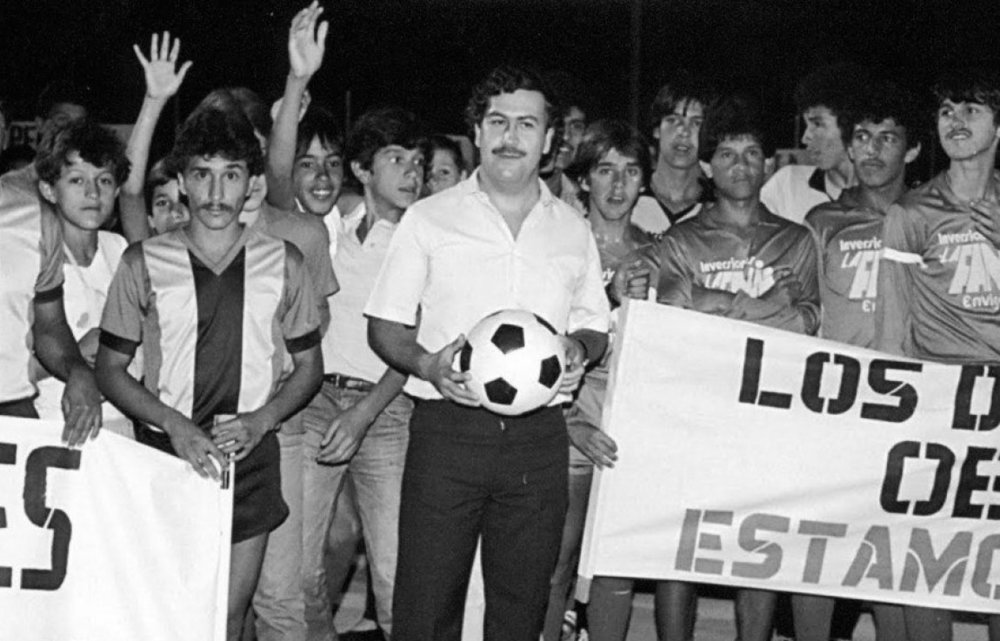Upon watching Pablo Escobar: El Patron del Mal, it has been challenging to not be invested while thinking critically on the telenovela. As I watch, a prominent role is the identity of the Colombian people. Within the backgrounds and some mannerism of the characters give direct relations of the Catholic Church. At times when someone commits murder, they repeat the "sign of the cross" with their hands. Approximately 95% of the population consider themselves a members of the religion. I think back to class when watching the Turkish show the importance the Ulama was to delivering the writers message. The idea of the telenovela being a mirror of reality is enforced with the recurring gesture.
The social issues of Colombia at the time is reflected by the actions of Escobar. Early in the telenovela, Escobar is seen exploiting systems to gain benefit for himself. The first example is Escobar gets answer from a math test and when things do not go as planned he causes a scene. Later, Escobar earns wealth through the delivery of black market goods. The military that are suppose to be preventing such activities are persuaded to let the goods pass. The corruption of the police is a social issues that is persistent in Colombia and several other countries in Latin America. The military is also actively fighting the oppression of guerilla forces. The telenovela includes the guerilla forces and characters persistently assume the forces just want money. I am not familiar with guerilla tactics but I assumed this was writers reflection of guerilla forces always asking for money.
I can make the connections to telenovela being a mirror representation of reality. While I know Pablo Escobar was a real person, the writers made sure that the identity of the country was consistent in every scene. Whether the identity is a camera shot of a beautiful landscape, a street view of Spanish architecture, or the actions of many people the representation is a mere reflection of the time. As I slowly binge the 77 episode of the telenovela, the representation begins to grow. Just over the horizon is the political issues that soon Escobar will discover and probably exploit as well
.

I think your take of the religious representation is super interesting. There is not a huge religious aspect in my chosen telenovela so I would be interested to see how that representation impacts the characters and their decision process as they go on. Do they deal with more or less guilt? Questions like that go through my head as I analyzed this telenovela. I also think it's interesting that you have Pablo Escobar as the protagonist since, like you point out, he was a real person. I think it's cool that you saw so many real reflections within the country and the representation of the characters in the telenovela. I think that is a testament to the success of the production team and writers.
ReplyDeleteSiempre pienso que es increíblemente interesante cuando se trata de tratar de reflejar la realidad con la televisión. Estoy seguro de que esta telenovela fue muy interesante y tendré que ponerla en mi lista. En mi telenovela Celia, siguió la vida de Celia Cruz y cómo los Barbudos tomaron el control de Cuba. Siguieron cómo usaban la religión y el interés mejor de la gente para convencer al público de creer en ellos. A pesar de todo, fue increíble ver cómo este tipo de personas son capaces de ganar poder y mantenerse en el poder.
ReplyDelete